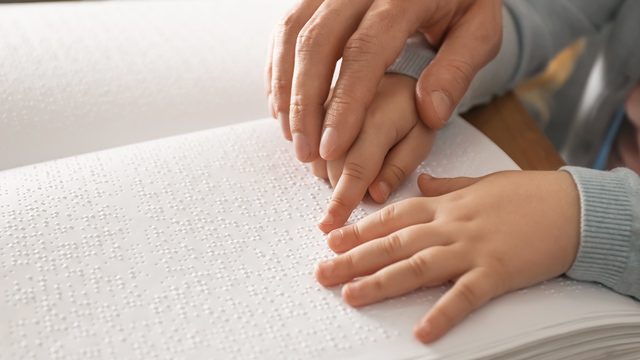SUMMARY
This is AI generated summarization, which may have errors. For context, always refer to the full article.

MANILA, Philippines – A study by state think tank Philippine Institute of Development Studies (PIDS) urged the government to initiate more activities and programs that would increase awareness about special education (SPED) students.
Research associates and authors of the study Adrian Agbon and Christian Mina suggested the provision of mobile SPED schools, especially in far-flung areas, to cater to all types of students with disabilities. They also recommended putting up more SPED facilities that cater to all types of disabilities, which can be done by tapping local government units (LGUs).
Currently, there are a lot of barriers that hinder SPED teachers from using inclusive strategies in the classroom. A related study of Save the Children Philippines (SCP) disclosed that inappropriate student group size, absence of safe learning environments for children with disabilities, and insufficient budget for inclusive education are among the obstacles faced by the SPED community.
Sierra Mae Paraan, basic education technical adviser of SCP, also noted that educators also face problems that hinder them from teaching effectively. She said this is brought by poor classroom management, inadequate use of materials, lack of instructional dialogue, and the teachers’ lack of proficiency in sign language.
Perception and culture are part of the problem, too, according to Paraan. She said prior to the training provided by SCP, teachers who handled children with disabilities were unaware that some of their practices are considered forms of discrimination, such as “labeling children or grouping them by ability all the time.”
“Some parents, teachers, and education officials [still] hold a negative perception of children with disabilities… [They] continue [to perceive them] as a curse or their respective disability as contagious,” she added.
Paraan said this is also manifested in the way parents handle their children. Some parents would unintentionally discriminate their children by enrolling their kids in a normal school in an attempt to “normalize” them, she said.
“Ang pagsuporta at pagkamit ng inclusive education ay hindi lang nakaatang sa DepEd. Mahalaga na nag-uusap sa local level ang barangay, ang eskuwelahan, ang private sector, ang allied health professionals at ang academe kasi sa ganitong paraan makaka-contribute ang bawat isa at maa-achieve yung goals,” Paraan said at a research forum organized by SCP and PIDS in support of the international day of persons with disabilities on December 3.
(Supporting and achieving inclusive education is not the Department of Education’s responsibility only. It is important that LGUs, schools, the private sector, allied health professionals, and the academe discuss the issue at the local level because this way each sector can contribute.)
As well, Agbon and Mina suggested strengthening the training programs specific to handling pupils/students with special needs as part of the retooling of teachers.
They also proposed the development of learning modules on basic health care and entrepreneurial skills, which can be done by DepEd, Department of Health, Department of Social Welfare and Development-Area Vocational Training Center, and the Technical Education and Skills Development Authority. – Rappler.com
Add a comment
How does this make you feel?
There are no comments yet. Add your comment to start the conversation.